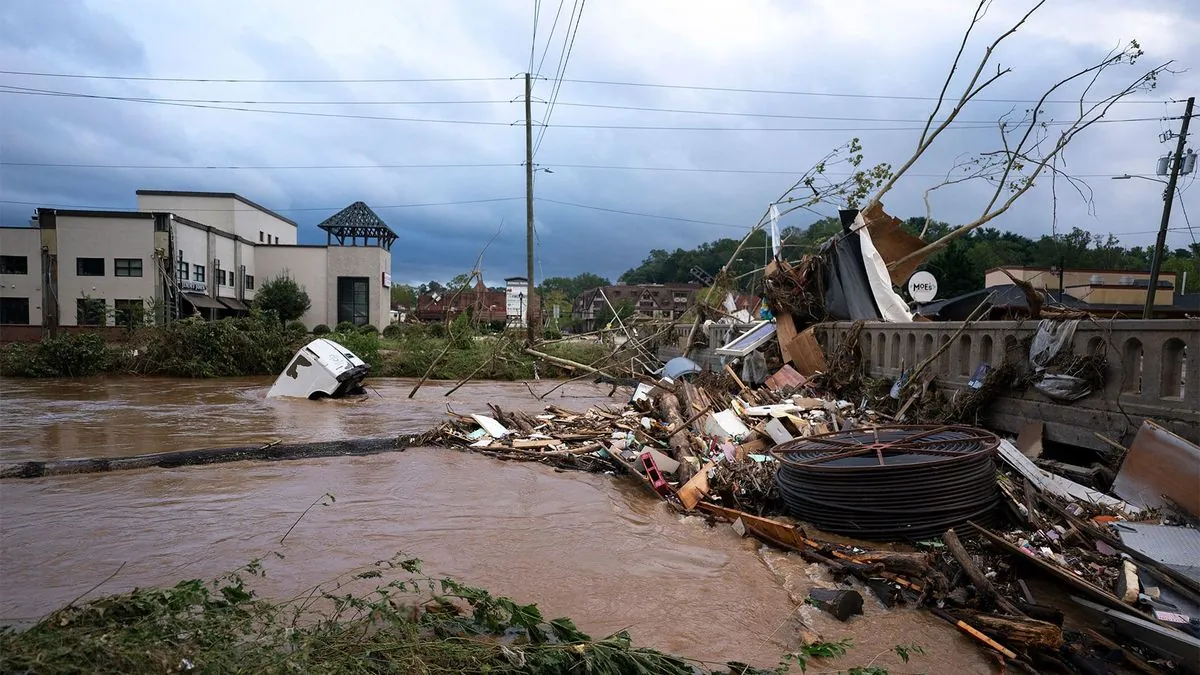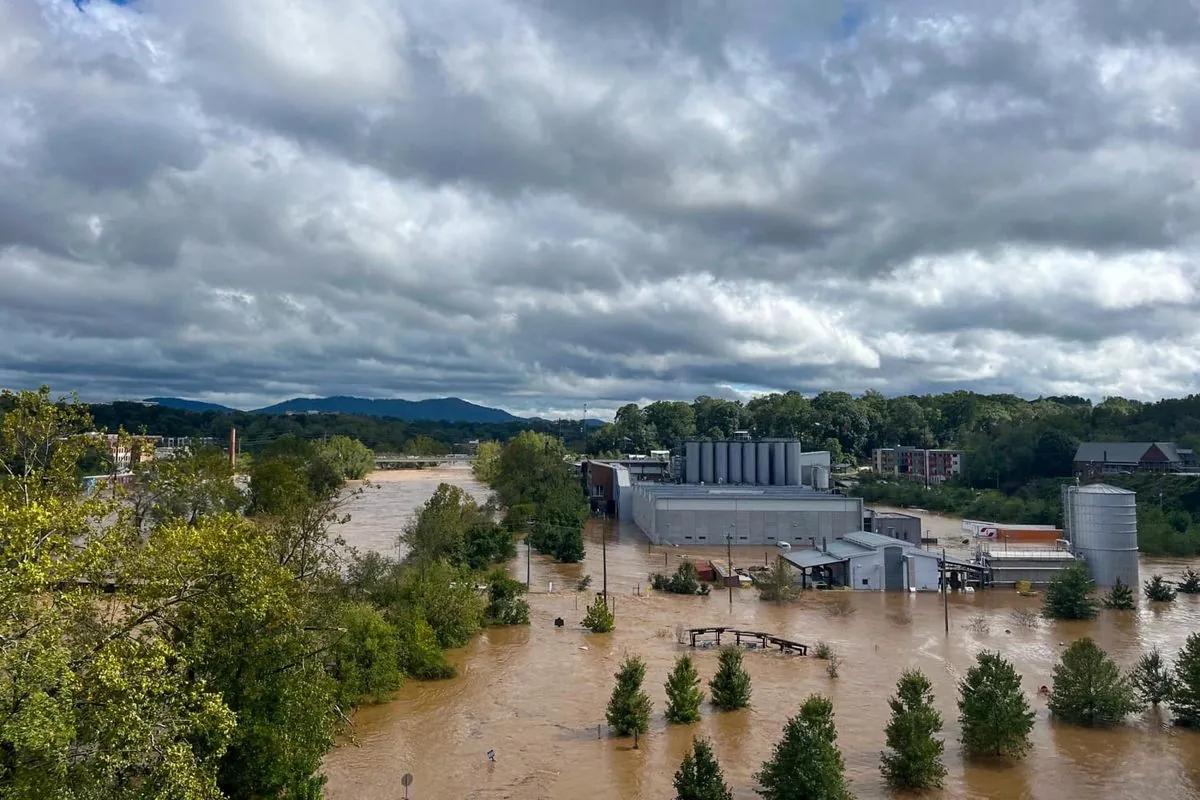Biden to Survey Hurricane Helene's Devastation in Western North Carolina
Hurricane Helene wreaks havoc across southeastern US, with Western North Carolina severely impacted. President Biden to visit as rescue efforts continue and election officials prepare for voting challenges.

In the aftermath of Hurricane Helene, President Joe Biden is scheduled to visit Western North Carolina on October 2, 2024, to assess the extensive damage caused by the storm. The region, particularly Asheville, has been severely impacted, with at least 133 fatalities reported and hundreds still unaccounted for as of October 1, 2024.
Asheville, nestled in the Blue Ridge Mountains and known as the "Land of the Sky," has suffered catastrophic damage to its water system, which may take weeks to fully restore. The city, home to approximately 95,000 residents, is facing unprecedented challenges in the wake of the hurricane.
Emergency workers are tirelessly clearing roads, restoring power and cellphone service, and reaching stranded individuals. Relief efforts are utilizing various means of transportation, including air, truck, and even mule, to deliver supplies to Asheville and surrounding mountain communities.

The storm's impact extends beyond Asheville, affecting multiple states across the southeastern United States. Fatalities have been reported in Florida, Georgia, South Carolina, and Virginia. The devastation includes flooding, mudslides, and infrastructure damage, with a 6.4-kilometer section of Interstate 40 heavily affected.
"The damage is severe, and we're continuing to tell folks if you don't have a reason to be in North Carolina, do not travel on the roads of western North Carolina."
Election officials are working to ensure displaced residents can participate in the upcoming presidential election. Karen Brinson Bell, executive director of the North Carolina State Board of Elections, is exploring options for voters in the hardest-hit counties, including provisions for those unable to provide photo identification due to the natural disaster.
The severity of the impact in Western North Carolina can be attributed to the region's topography. Asheville and surrounding towns, built in valleys, are particularly vulnerable to flooding. The Appalachian Mountains caused the remnants of Helene to produce even more rainfall as they encountered higher elevations and cooler air.
Climate change is exacerbating the conditions that allow storms like Helene to intensify rapidly. Asheville, known for its sustainable living initiatives and surrounded by over one million acres of protected wilderness, now faces the challenge of rebuilding while maintaining its commitment to environmental stewardship.
As rescue and relief efforts continue, the resilience of Asheville's community is evident. The city, famous for its vibrant arts scene, historic architecture, and thriving craft beer industry, will need to draw on its strong sense of community to overcome this disaster.
Meanwhile, Tropical Storm Kirk formed in the eastern Atlantic Ocean on September 30, 2024, and is expected to become a powerful hurricane in the coming days. As the southeastern United States grapples with the aftermath of Helene, the potential threat of another storm looms on the horizon.


































